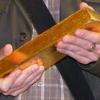I am in

#61
Posted 08 February 2015 - 10:13 AM
#62
Posted 07 March 2015 - 03:42 PM
Here's the cheapest source I've been able to find for beta NGF.
http://www.sinobiolo...tein-g-454.html
20mcg for $38. I can't remember if we figured out what a good dose would be for nasal application but some things I've reading lately show it to be active in very small amounts. I don't have know where I found the website at so I can't provide a link but I think I read a dose as small as 4.7mcg would be effective. But I could be wrong so maybe someone else should comment on that. Regardless, I'm still interested in trying this.
#63
Posted 07 April 2015 - 12:47 AM
what's the status on this guys? i would be interested to join this groupbuy
#64
Posted 08 April 2015 - 06:55 AM
status seems to be development hell
#65
Posted 10 April 2015 - 04:28 AM
#66
Posted 10 April 2015 - 06:51 AM
Did this drop off?? I would love to be a part of this.
#67
Posted 20 April 2015 - 10:06 PM
#68
Posted 21 April 2015 - 02:02 AM
#69
Posted 21 April 2015 - 03:07 AM
#70
Posted 29 April 2015 - 10:52 AM
I am interested (2mg) but also curious if what we will be procuring will indeed be suitable for consumption and not just in-vitro work.
#72
Posted 29 April 2015 - 04:15 PM
#73
Posted 05 May 2015 - 01:34 AM
http://pubs.acs.org/...emneuro.5b00069
Edited by dz93, 05 May 2015 - 01:36 AM.
#74
Posted 24 May 2015 - 01:12 AM
im in 3mg
i think we should have enough for a group buy from the looks of this thread... if not let us know how much more is needed so we can try to get over the mark.. I believe all we needed to get to was 20mg right? or 30mg?? we have to be real close ![]()
#75
Posted 24 May 2015 - 01:30 AM
#76
Posted 24 May 2015 - 01:58 AM
Interested
#77
Posted 24 May 2015 - 04:55 AM
I'm in for 1 mg. But how long does it usually take to get such a thing off the ground? The buy was proposed 4 months ago.
#78
Posted 24 May 2015 - 05:30 AM
I'm in... if it's happening.
#79
Posted 24 May 2015 - 07:20 AM
#80
Posted 24 May 2015 - 07:53 AM
In for 2 mg.
#81
Posted 24 May 2015 - 07:51 PM
in for 1 mg please, amazing work lads!
#82
Posted 24 May 2015 - 09:35 PM
I'm in
Let's say 1mg, or 2mg if you think the stuff can last for while (like 1 year) without degrading
Edited by Keizo, 24 May 2015 - 09:38 PM.
#83
Posted 24 May 2015 - 11:11 PM
Is there a paper that has some data on dosing? I remember trying to find out what dosage Dr. Levi-Montalcini was using and I never could find a concrete source. Surely, there must be a paper of hers or one of her colleagues with a basis for dosing in eyedrop form (not nasal) ?
#84
Posted 25 May 2015 - 12:53 AM
Is there a paper that has some data on dosing? I remember trying to find out what dosage Dr. Levi-Montalcini was using and I never could find a concrete source. Surely, there must be a paper of hers or one of her colleagues with a basis for dosing in eyedrop form (not nasal) ?
Hi prophets,
You might need to do that research with an Italian speaking colleague/friend.
Rita grew up in Turin, and did her academic work, in Turin.
This story about Rita's eye drops interests virtually everyone (that shares our interest in longevity).
I'm sure there's no shortage of longevity aware Italians.
There simply _will_ be interviews, or articles or perhaps biographical accounts that detail Rita's
eye drops routine (and dosages). Almost definitely it's out there, somewhere, probably in Italian.
If you have any Italian friends who might be persuaded into searching the Italian internet for
this 'nugget of knowledge'... please do persuade them.... harangue them, if necessary ;-)
A good place to start on this 'nugget' would be the publications list on Rita's wikipedia entry:
http://en.wikipedia....Levi-Montalcini
playground :-)
#85
Posted 25 May 2015 - 01:13 AM
Is there a paper that has some data on dosing? I remember trying to find out what dosage Dr. Levi-Montalcini was using and I never could find a concrete source. Surely, there must be a paper of hers or one of her colleagues with a basis for dosing in eyedrop form (not nasal) ?
Hi prophets,
You might need to do that research with an Italian speaking colleague/friend.
I quickly scanned around and found this paper for glaucoma in rats at 200 ug/mL (deemed the preferred dosage relative to another cohort at 100 ug/mL). They then treated 3 humans at an equivalent dose level:
Treatment Regimen in Patients with Glaucoma.
Based on the dosage regimen used in the animal model, the 3 patients were treated topically with 1 drop (≈50 μL) of highly purified murine NGF, 200 μg/mL, instilled into the conjunctival fornix of 1 eye only 4 times daily for 3 months.
I would guess that these sort of levels informed her thinking. However, I would personally be more cautious -- at least at the outset of any experimentation.
Edited by prophets, 25 May 2015 - 01:18 AM.
#86
Posted 25 May 2015 - 08:10 AM
Drug companies love money.
They'd do virtually anything for it... flagrantly and without remorse.
Supress effective cures... Gerson Therapy, Essiac, Pancreas Enzymes, Hoxsey's Remedy, etc
Fake trial data in order to bring a drug to market.
Push medicines known to have toxic effects on foreign populations
Push for the legalisation of cures that don't work.
Or worse, they make mandatory, cancer treatments that have worse outcomes than no treatment.
So... drug companies love money.
So when a drug company drops a drug for reasons of toxicity,
we really need to take that seriously.
Above there's a video featuring a presentation by Dr John Michael on NGF.
He relates the story of how Genentech ditched NGF at stage 3 trials.
Prima facie, it's obviously good idea to test NGF on diabetic neuropathy.
NGF is, according to the following article:
" selectively trophic for small fiber sensory and sympathetic neurons.."
The article is: http://www.ncbi.nlm....pubmed/12198818
Title:Nerve growth factor for the treatment of diabetic neuropathy:
what went wrong, what went right, and what does the future hold?
If you listen to Dr John Michael's presentation he says that they had a problem
with toxicity.. and that they (Genentech) were using dosing levels several 'logs'
higher than the levels he was using...
However, Michaels has only been using tiny amounts of NGF: 0.04 micrograms
(yes, that number is 4% of 1 microgram)
The official literature from Genentech fails to say that they found
NGF toxicity. Instead they say things like:
"...human nerve growth factor (rhNGF) for use in treating patients with
diabetic peripheral neuropathy did not meet its objectives."
(see: http://www.gene.com/...-growth-factor)
Michaels seems to hint that perhaps NGF has been misnamed.
Maybe NGF isn't particularly trophic of neurons.
Maybe NGF acts in a way which is more like a (novel acting) anti-depressant.
I think that NGF is widely suspected as being a 'brain steriod' partly
because of it's name.. and partly because of Rita Levi-Montalcini's 'eye drops' story.
but Genentech tell us that NGF is..:
" selectively trophic for small fiber sensory and sympathetic neurons.."
That's not the same as some generalised 'brain steriod' as implied by
something named 'Nerve Growth Factor'
Similarly, Michaels tells us that there seems to be no mass to dose
relationship for NGF and anti-depressant effect. He gives the same dose
to dogs, humans and horses. And it doesn't seem to matter if the NGF
is supplied intravenously or sublingually.
Michaels suggests that NGF is acting as a signal. Perhaps a DNA signal
or a membrane signal. In other words, it's simply a trigger to other
endogenous changes.
Michaels' emphasis is NGF as a new anti-depressant.
Maybe NGF isn't what it's name suggests.
I recommend any interested readers watch the video supplied in the post above
(See dz93's post on page 2 of this thread)
playground
Edited by playground, 25 May 2015 - 08:15 AM.
#87
Posted 25 May 2015 - 12:40 PM
If you listen to Dr John Michael's presentation he says that they had a problem
with toxicity.. and that they (Genentech) were using dosing levels several 'logs'
higher than the levels he was using...
However, Michaels has only been using tiny amounts of NGF: 0.04 micrograms
(yes, that number is 4% of 1 microgram)
Michaels seems to hint that perhaps NGF has been misnamed.
Maybe NGF isn't particularly trophic of neurons.
Maybe NGF acts in a way which is more like a (novel acting) anti-depressant.
I think that NGF is widely suspected as being a 'brain steriod' partly
because of it's name.. and partly because of Rita Levi-Montalcini's 'eye drops' story.
but Genentech tell us that NGF is..:
" selectively trophic for small fiber sensory and sympathetic neurons.."
That's not the same as some generalised 'brain steriod' as implied by
something named 'Nerve Growth Factor'
Similarly, Michaels tells us that there seems to be no mass to dose
relationship for NGF and anti-depressant effect. He gives the same dose
to dogs, humans and horses. And it doesn't seem to matter if the NGF
is supplied intravenously or sublingually.
Michaels suggests that NGF is acting as a signal. Perhaps a DNA signal
or a membrane signal. In other words, it's simply a trigger to other
endogenous changes.
Michaels' emphasis is NGF as a new anti-depressant.
Maybe NGF isn't what it's name suggests.
I recommend any interested readers watch the video supplied in the post above(See dz93's post on page 2 of this thread)
Thank you very much for pointing that out. It was a great video. Dr. McMichaels should probably be consulted upon for dosing. He also explains away my prior question: why is Dr. Rita Levi-Montalcini using the same dose on humans as she was on rats? McMichael says the same dose works on every subject (horse, dog, human) and that's why it leads him to believe it is a signaling molecule. I'm not 100% sure I buy into what he's saying, given that Levi-Montalcini used 100 ug/mL and 200 ug/mL and found superior results in the latter (the difference of what those results actually mean, I don't really know yet at this point). So the issue isn't 100% closed in my mind, but McMichaels work certainly makes the idea of taking ngf a lot more palatable.
#88
Posted 25 May 2015 - 12:47 PM
Drug companies love money.
They'd do virtually anything for it... flagrantly and without remorse.
Supress effective cures... Gerson Therapy, Essiac, Pancreas Enzymes, Hoxsey's Remedy, etc
Fake trial data in order to bring a drug to market.
Push medicines known to have toxic effects on foreign populations
Push for the legalisation of cures that don't work.
Or worse, they make mandatory, cancer treatments that have worse outcomes than no treatment.
So... drug companies love money.
So when a drug company drops a drug for reasons of toxicity,
we really need to take that seriously.
Above there's a video featuring a presentation by Dr John Michael on NGF.
He relates the story of how Genentech ditched NGF at stage 3 trials.
Prima facie, it's obviously good idea to test NGF on diabetic neuropathy.
NGF is, according to the following article:
" selectively trophic for small fiber sensory and sympathetic neurons.."
The article is: http://www.ncbi.nlm....pubmed/12198818
Title:Nerve growth factor for the treatment of diabetic neuropathy:
what went wrong, what went right, and what does the future hold?
If you listen to Dr John Michael's presentation he says that they had a problem
with toxicity.. and that they (Genentech) were using dosing levels several 'logs'
higher than the levels he was using...
However, Michaels has only been using tiny amounts of NGF: 0.04 micrograms
(yes, that number is 4% of 1 microgram)
The official literature from Genentech fails to say that they found
NGF toxicity. Instead they say things like:
"...human nerve growth factor (rhNGF) for use in treating patients with
diabetic peripheral neuropathy did not meet its objectives."
(see: http://www.gene.com/...-growth-factor)
Michaels seems to hint that perhaps NGF has been misnamed.
Maybe NGF isn't particularly trophic of neurons.
Maybe NGF acts in a way which is more like a (novel acting) anti-depressant.
I think that NGF is widely suspected as being a 'brain steriod' partly
because of it's name.. and partly because of Rita Levi-Montalcini's 'eye drops' story.
but Genentech tell us that NGF is..:
" selectively trophic for small fiber sensory and sympathetic neurons.."
That's not the same as some generalised 'brain steriod' as implied by
something named 'Nerve Growth Factor'
Similarly, Michaels tells us that there seems to be no mass to dose
relationship for NGF and anti-depressant effect. He gives the same dose
to dogs, humans and horses. And it doesn't seem to matter if the NGF
is supplied intravenously or sublingually.
Michaels suggests that NGF is acting as a signal. Perhaps a DNA signal
or a membrane signal. In other words, it's simply a trigger to other
endogenous changes.
Michaels' emphasis is NGF as a new anti-depressant.
Maybe NGF isn't what it's name suggests.
I recommend any interested readers watch the video supplied in the post above(See dz93's post on page 2 of this thread)
playground
The only thing that I read here with some certainty, is that we cannot be sure of the exact benefits of NGF and to use smaller doses, at the same time my impression reading experiences with supplements that potentiate/release NGF seem very promising for further experimentation.
I was thinking to try for a direct order for shipment in Europe (due to stability issues...?) but if you can arrange fast and safe transport to Europe I am interested in this group buy also.
Well said!
"Supress effective cures... Gerson Therapy, Essiac, Pancreas Enzymes, Hoxsey's Remedy, etc
Fake trial data in order to bring a drug to market.
Push medicines known to have toxic effects on foreign populations
Push for the legalisation of cures that don't work.
Or worse, they make mandatory, cancer treatments that have worse outcomes than no treatment."
Edited by Strangelove, 25 May 2015 - 12:54 PM.
#89
Posted 25 May 2015 - 07:01 PM
Hi Prophets,
1. Yeah, sorry, McMichaels.
2. Quote: Why is Levi-Montalcini using the same dose on humans as she was on rats?
I know nothing of these research papers. I'd be grateful if you could point me in the direction of those articles. :-)
3. Perhaps a big and complicated molecule like NGF has diverse effects on different systems.
Perhaps it has systemic effects, as a signalling molecule, on systems that give rise to anti-depressant effects.
Perhaps it has local effects, in a dose-dependent manner, on the growth of small nerve fibers (for sensory and sympathetic neurons only).
4. McMicheals tells us, right at the very start of his presentation, that pharma companies have invested a lot of money into
NGF research in the last 10 to 15 years. He also said that Genentech abandoned Stage 3 trials with NGF 3 years ago.
If you check the date on the Genentech press announcement about this, it's dated 1999.
So presumably McMichaels gave his presentation around 2002... 13 years ago.
In other words, pharma companies invested lots of money researching NGF over (at least) a 15 year period,
from about 30 years ago, and there's _still_ nothing on the market.
There have been proposed applications for NGF from alzhemiers, parkinsons, diabetic neuropathy, glaucoma and other eye conditions.
So many merciless pharma companies, pursuing profit despite the public good, and there's still no NGF on the market ?
Something's up... something is wrong with this scenario.
The efficacy data isn't there, or... as McMichaels said explicitly, they (Genentech) found toxicity results.
5. Quote: Dr. McMichaels should probably be consulted upon for dosing.
That's an excellent idea.
Perhaps he could be asked about the toxicity results of genentech.
Perhaps he could be asked, in his opinion, how trophic NGF really is.
Has it been misnamed from the beginning ?
6. Be wary of believing what you _want_ to believe.
A 'fantasy' is something you believe because it has an emotional payoff for you.
It makes you feel good, perhaps superior or competent, or it gives you hope, or spares you from fear ..etc.
We might find, for example, that in reality, pregnenolone is more trophic of neurons than NGF.
The question ultimately is: What's the reality ?
playground
Edited by playground, 25 May 2015 - 07:05 PM.
#90
Posted 25 May 2015 - 07:13 PM
That aside, I think I'll just wait until more information is found out about NGF before I decide to buy some. I'd imagine in the future there will be drugs created that increase NGF in certain regions of the brain to get a more targeted and controlled result but just giving your body NGF probably won't have the effect we think it will because NGF is used for more then just neuron growth in the brain.
Also tagged with one or more of these keywords: nootropic ngf
Science & Health →
Brain Health →
l-serine potent nootropicStarted by normalizing , 14 Apr 2014 |
|

|
2 user(s) are reading this topic
0 members, 2 guests, 0 anonymous users





















































